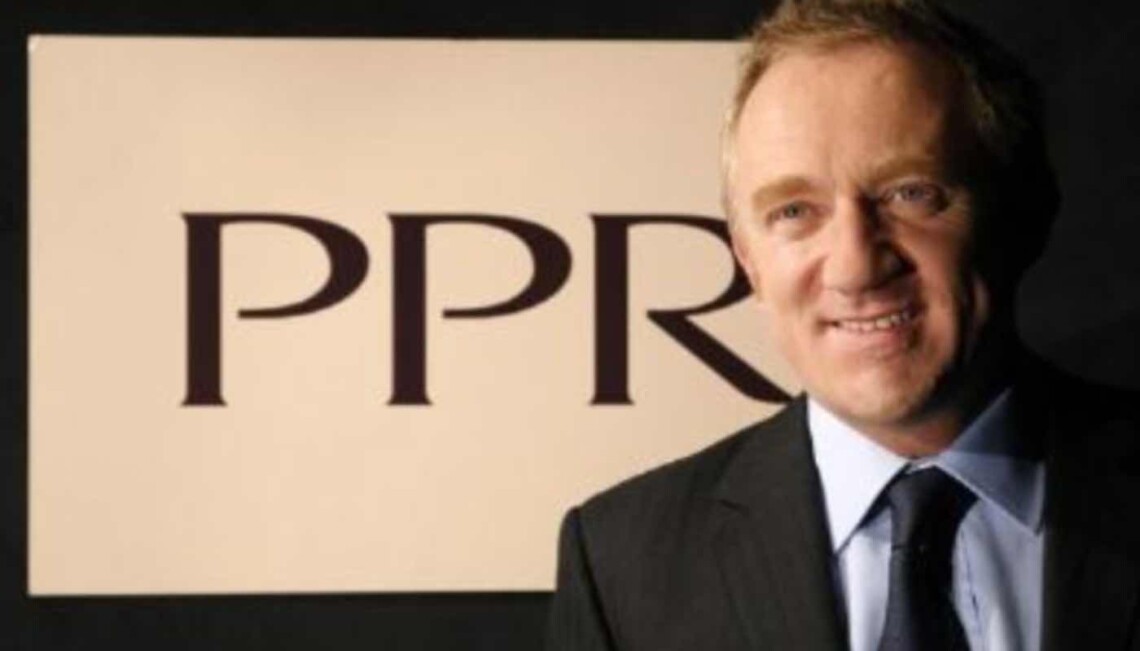PPR (Pinault-Printemps-Redoute)-il 22 marzo 2013, Kering
With a presence in 65 countries world-wide, the Pinault-Printemps-Redoute Group competes in two different strategic areas, business-to-business distribution, and, through Gucci, the luxury market. It was founded in 1963 by Franµois Pinault
By the middle of the 1990s, PPR had become one of the European leaders of business-to-business distribution.
Its strategy is based on ownership of several brand leaders and on the multi-stranded distribution network of selling via mail-order, on the internet, and in department stores, to meet the different customer requirements.
Ppr in 1988 Pinault Sa
In 1988 Pinault SA, a specialist in the sales, distribution and processing of wood, was floated on the Paris Stock Market’s Second Marché. Two years later the group acquired CFAO, a company specializing in the distribution of electric material and trade with Africa. In 1991 the group acquired Conforama and Printemps, and next was the turn of La Redoute. 1994 the PPR Group was founded. In the same year they also took over Fnac. 1995 the group was floated on the CAC 40 index on the Paris Stock Exchange.
1996 is the date when the group acquired SCOA, the main distributor of pharmaceuticals in Africa, through its European affiliate Eurapharma. Also to these came the women’s underwear chain Orcanta, and Fnac Direct. In 1997 the group took control, through Redcats, of Ellos, the leader in the Scandinavian mail-order market&b;. In 1998 it was the turn of Guilbert, a European leader in furniture distribution, and 49.9% of Brylane, the fourth largest home-shopping company in the USA.
The Gucci Group
In 1999 the Group diversified towards the luxury market, acquiring 42% of the Gucci Group, which had itself that same year taken over Sergio Rossi and Yves Saint Laurent. In 2000 Conforama entered the Italian market, buying 60% of Emmezeta, while the Gucci Group acquired Surcouf, the largest distributor of computer accessories in Europe. Gucci’s purchasing campaign continued, as they took over Boucheron, Bottega Veneta, and Balenciaga, and signed partnership agreements with Stella McCartney and Alexander McQueen. In September 2001 a legal battle with LVMH over Gucci ended with the withdrawal of the group’s opponents following PPR’s increase in Gucci’s quota to 53.2% that year, and in 2002 to 54.4%.
In 2002 the group focused its strategies on distribution and the luxury market, selling its non-strategic assets. It also concentrated on profitability, pursing a path of efficiency and cutting costs. Sales reached 27.4 billion euros, with gross profits of 1.82 billion and net profits of 1.58 billion.
The French group PPR increased its shares in luxury Italian group Gucci to 67.34%, approaching its goal of 70% ownership by year’s end.
The group announced that Domenico De Sole, President and Managing Director of the Gucci Group, and Tom Ford, Creative Director of the Gucci Group and of the Gucci and Yves Saint Laurent labels, would not be extending their contracts when they expired in 2004. De Sole declared, “Gucci has been one of the great loves of my life, and the years I have spent with the company have been a fantastic journey.
The Gucci Group
I would like to thank Tom, whose creative genius has made our success possible, and also our extraordinary colleagues across the world. Thanks to their skill and devotion, we have been able to transform the small business, in difficulties when I joined it in 1984, into a world power in the luxury goods market, and so have created something of value for all of our stakeholders.”
Tom Ford said, “It is with great sadness that I look forward to a future without the Gucci Group.
For the last 13 years, this business has been my life. We are leaving one of the strongest teams in the sector, and I will do my best in the remaining time that I have with the company to assure the future success of the group. I could not be more proud of our work at Gucci, or the exceptional team of colleagues who have contributed with so much more than just their hard work: They have put their hearts into our quest for excellence. I am grateful to have been able to share my joy at the success of the group with such a fantastic group of people. I would like to thank Domenico for his extraordinary leadership, his constant support, and his friendship.”
Alessandra Facchinetti was appointed as the new Creative Director of Womenswear.
Born in Bergamo in 1972 and a graduate of the Istituto Maragoni in Milan, she started her careeer designing for Prada, soon becoming Artistic Coordinator for Miu Miu. She joined Gucci in October 2000 as Style Manager for Womenswear, and soon proved to be exceptionally talented. The new Creative Director of Menswear is John Ray. Born in Scotland, in 1986 he decided on a career change and moved to London to study design at the legendary Central St Martins. Having finished his studies, in 1992 he became part of Katherine Hamnett’s design team as Assistant Menswear Designer.
In a short time he took over management of menswear. In 1996 John was taken on by Tom Ford at Gucci as consultant designer for menswear, and soon began to work full-time for the company. Finally, the new Creative Director of Accessories is Frida Giannini. Born in Rome in 1972 she trained at the Accademia del Costume e della Moda. In September 2002 she became Style Manager for Pelletteria Gucci, and made a significant contribution to the success of the brand’s leather goods. In April, Robert Polet was made the new President and Managing Director of the Gucci Group, replacing Domenico del Sole. Polet, who is Dutch, arrived at Gucci after 26 years with Unilever.
PPR raised the stake held in the Gucci Group to 67%, with a unit price of 85.52 euros, as agreed in 2001 by Gucci, LVMH, and PPR.
In November Jean-Paul Gaultier signed a partnership agreement with well-known French mail-order company La Redoute, for its Spring-Summer 2005 collection. Around 20 outfits and accessories will be produced under the label La Redoute by Gaultier.
In December the French group sold Rexel, the world leader in the distribution of electronic goods. The sale made 3 billion euros for PPR, which will be spent on reducing the group’s debts.
In 2004 ended with a profit of 940.6 billion euros — an increase of 45.9% on 2003. Gross profits increased to 1.4 billion, higher than the 1.2 billion of the previous year, and in line with analysts’ forecasts.
The luxury market contributed 394 millions (compared to 237 millions in 2003)
In addition to her role managing all of Gucci’s accessories, Frida Giannini was made new Creative Director of womenswear, taking over from Alessandra Facchinetti. PPR finished the first quarter with a turnover of 4.1 billion euros, an increase of 2.2% on the previous year. Gucci, which represents 60% of PPR’s luxury sector, had a turnover of 429 millions, an increase of 19.3%. Sales at Yves Saint Laurent for these first three months of 2005 amounted to 39 millions in comparison to 40.5 millions the previous year.
Read also:
Eventi moda in Cina: i 5 eventi più significativi del 2021

